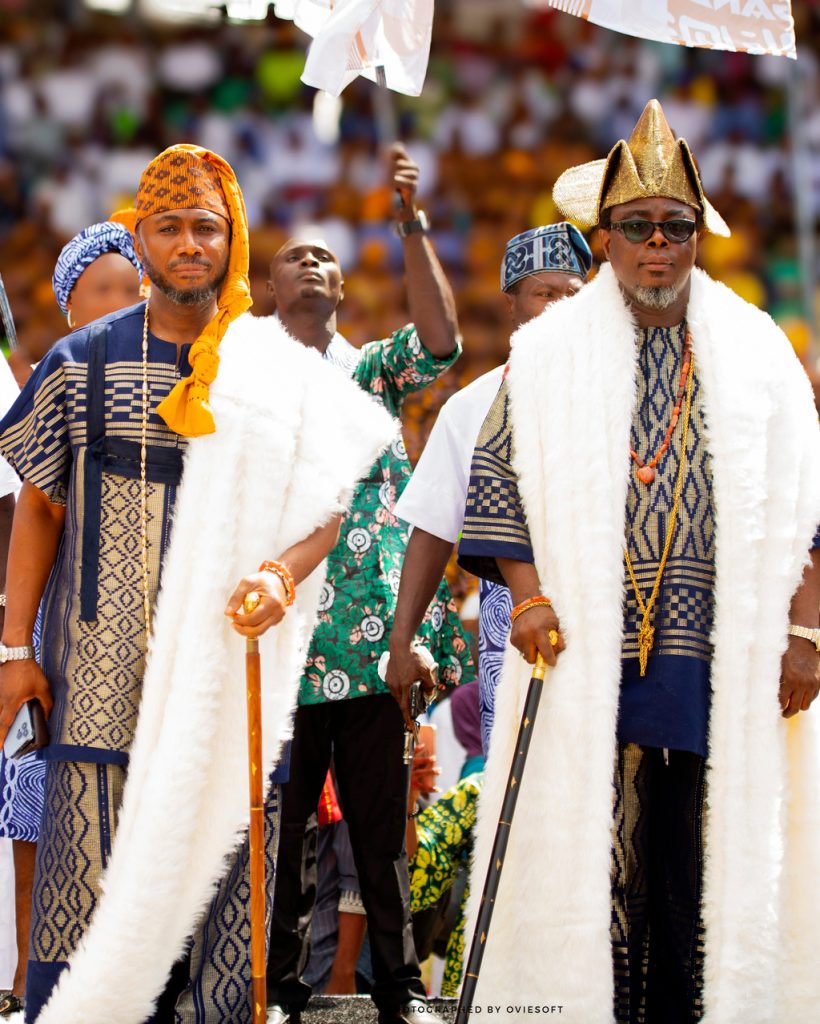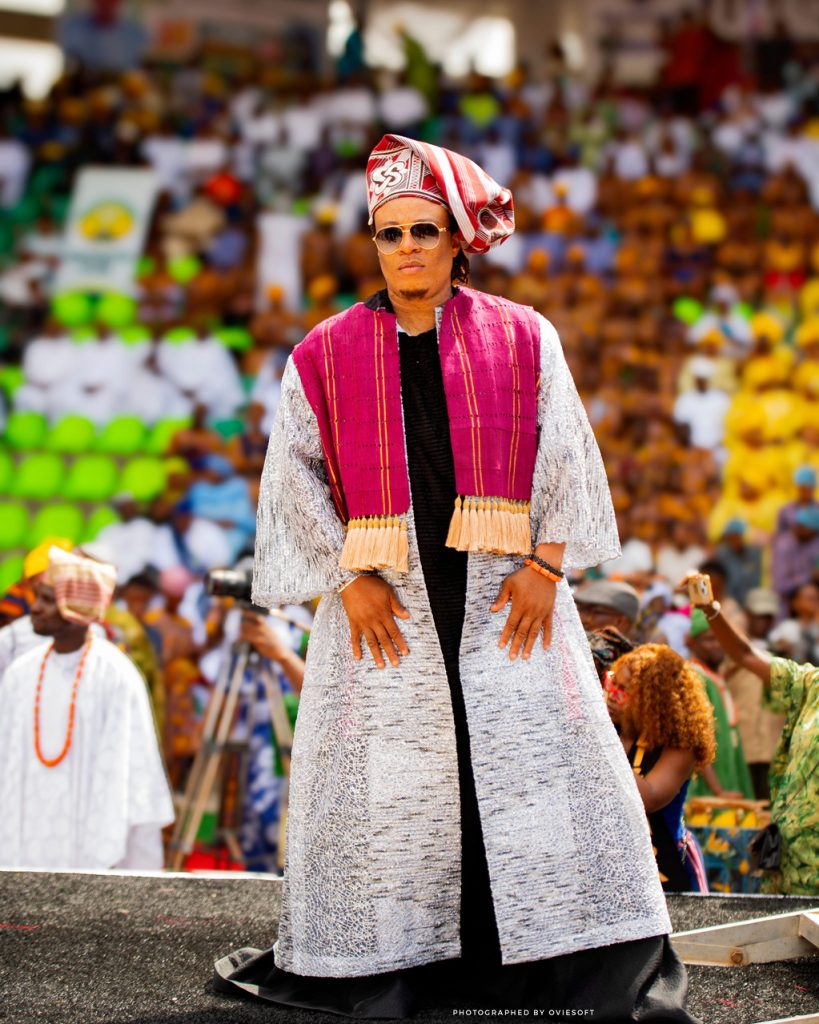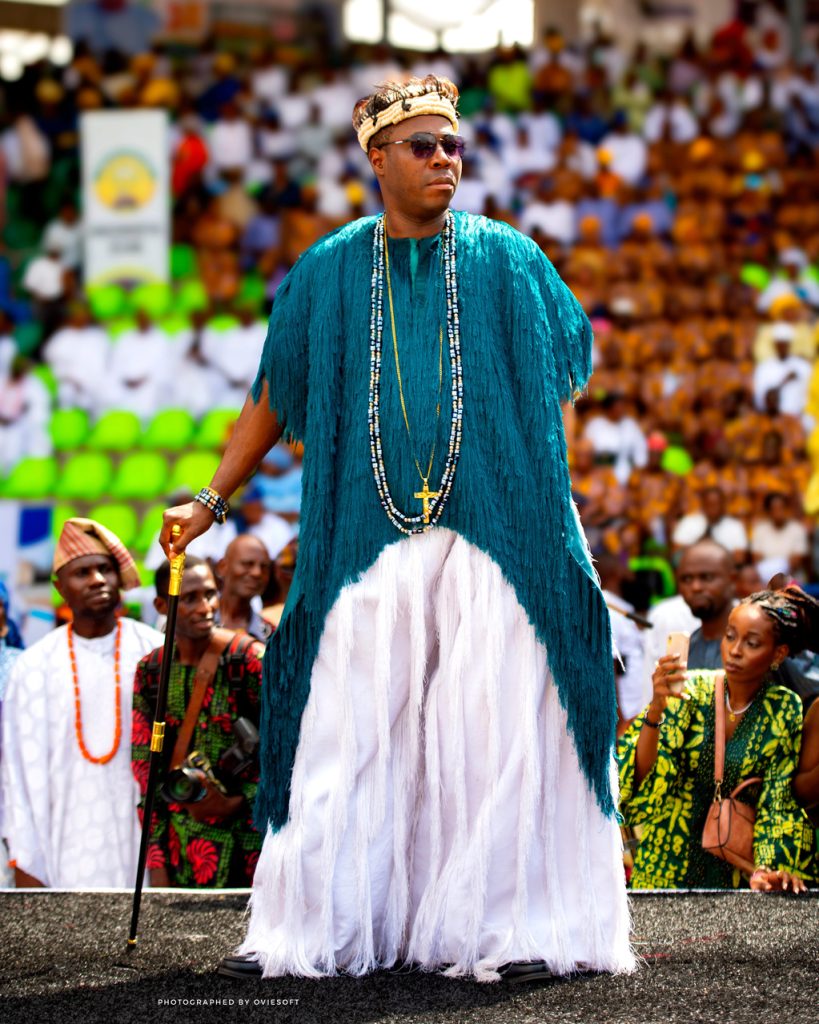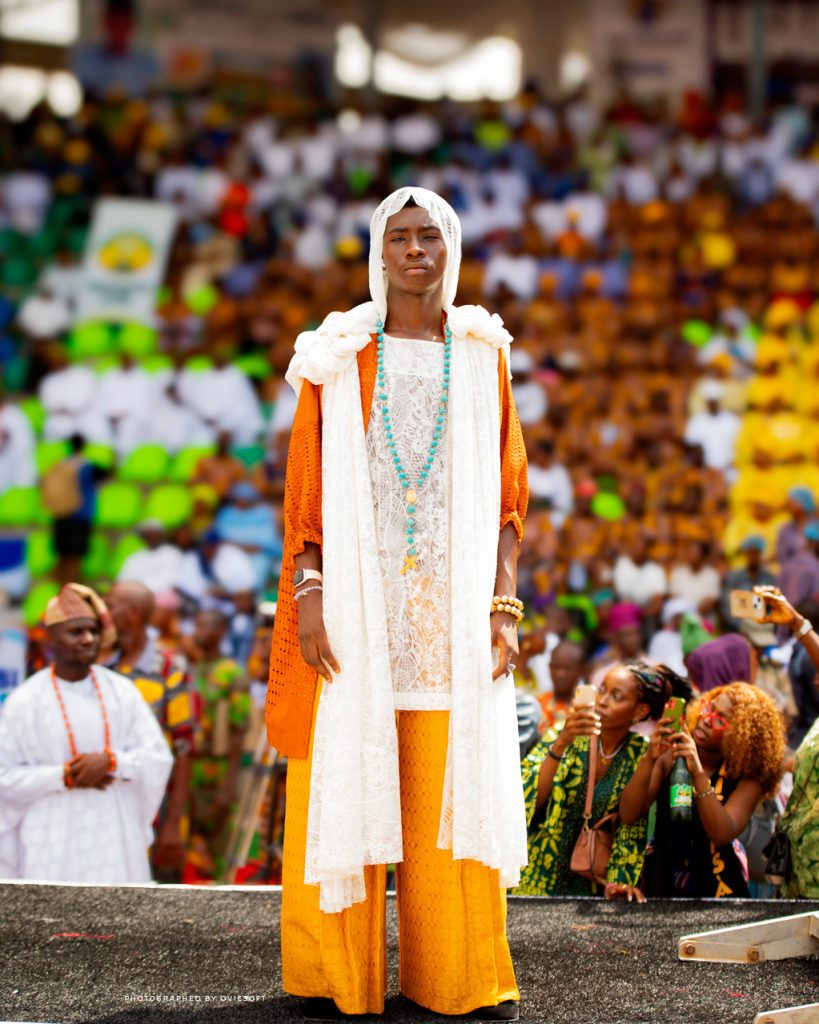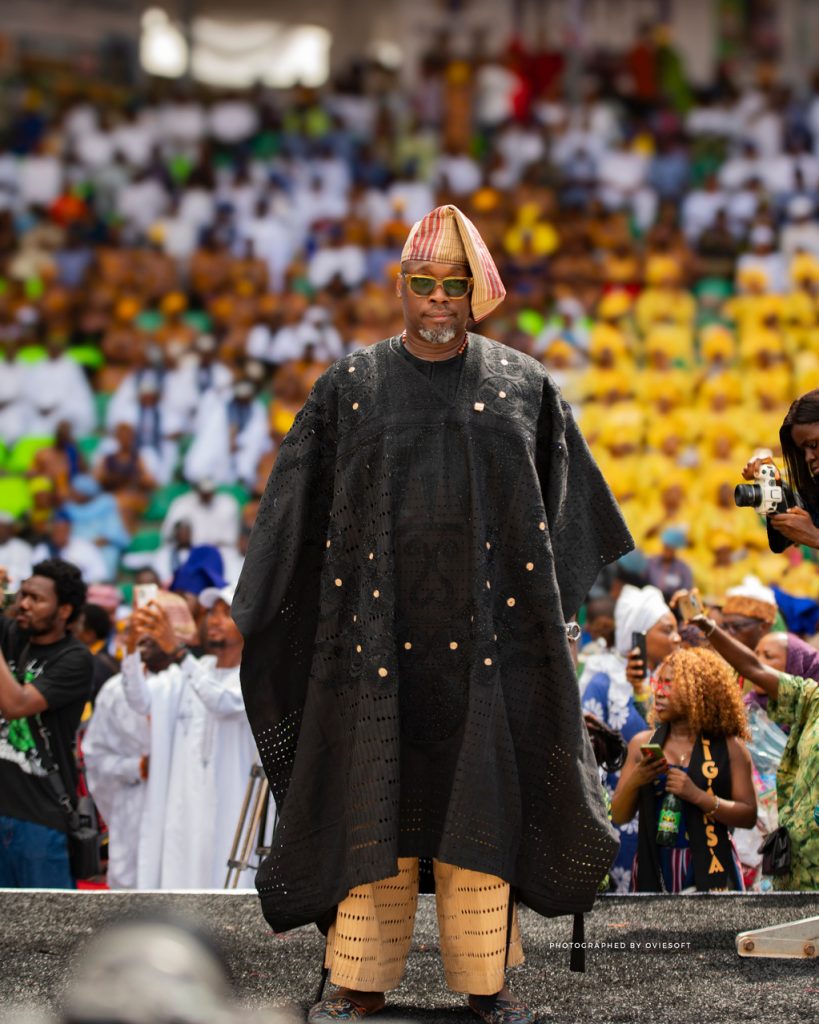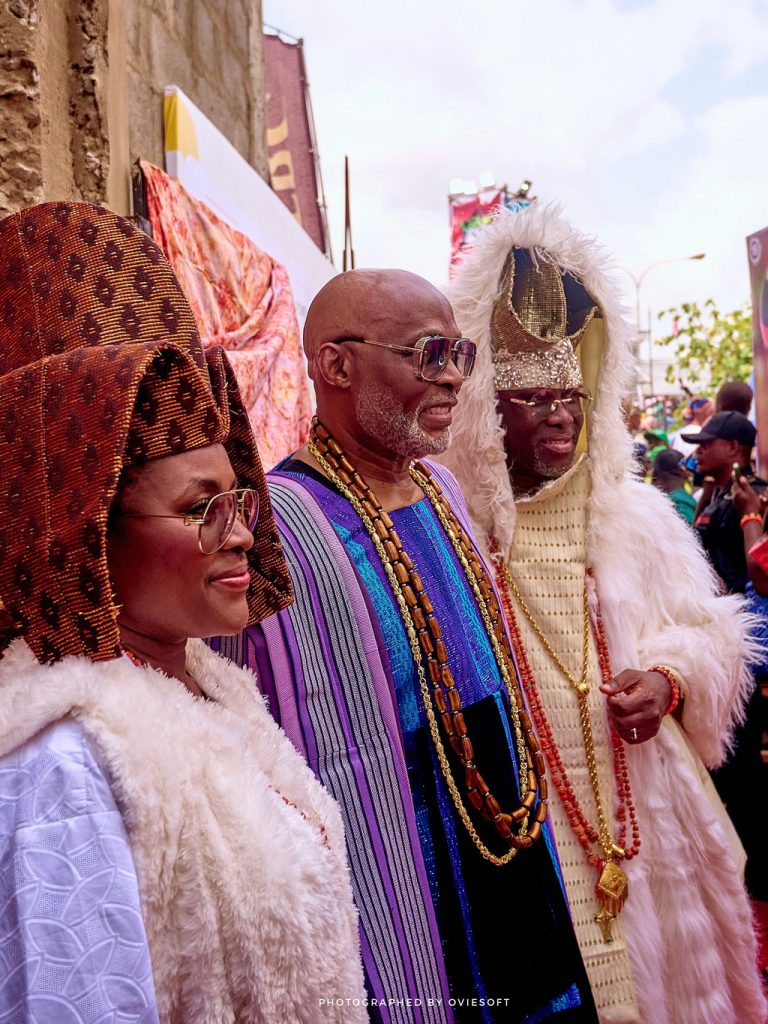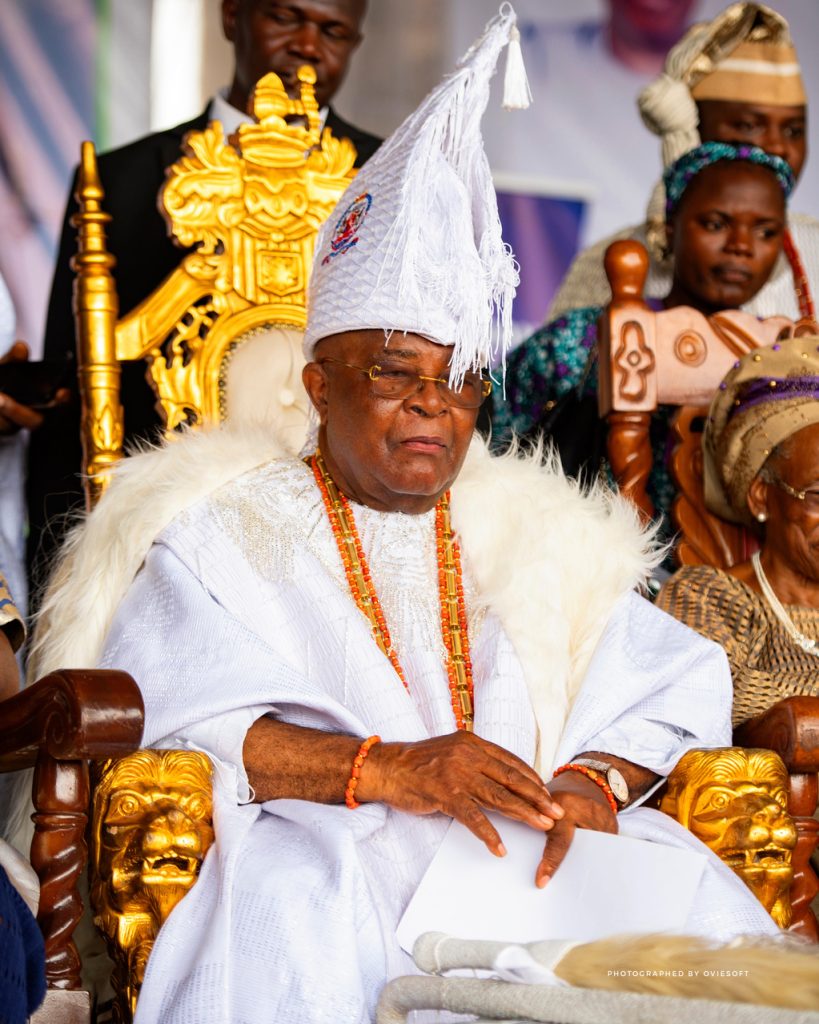Emmanuel Solate documents a festival that celebrates the role of Lisabi Agbongbo Akala in freeing the Egba people.
The 38th edition of the Lisabi Festival was a resounding celebration of history, heritage, and the creative evolution of the Egba people. Held on the 5th of April in Abeokuta, Ogun State, the festival honoured the enduring legacy of Lisabi Agbongbo Akala — the valiant warrior who liberated the Egba people from the tyranny of the Oyo Empire in the 18th century. This year’s event, themed Ègbáliganza 2025, did more than honour a hero; it redefined cultural celebration as a dynamic tool for global visibility, economic empowerment, and artistic excellence.
The Yorubas are one of the three major tribes in the southwestern part of Nigeria. In the past centuries before the colonisation of Nigeria by the British, the capital of the Yoruba people used to be Oyo, which controlled the kingdom of all subtribes of the Yoruba people, such as the Ijebus, Egbas, Aworis, Ilajes, Ekiti, Ife, Modakeke, Owus and many others, even reaching the Ketu, now part of the present-day francophone country, Benin Republic.
The Egba people are one of the Yoruba sub-ethnic groups comprising Ake, Owu, Oke Ona and Gbagura in Ogun Central Senatorial district, which is divided into six local government areas, namely, Abeokuta North, Abeokuta South, Ewekoro, Ifo, Obafemi Owode and Odeda local governments. The Egba people migrated from the Oyo Kingdom to the Egba forests, now Abeokuta, Ogun State. The Egba subdivisions of Ake, Owu, Oke Ona and Gbagura are ruled by different kings, namely Alake of Egbaland, Olowu of Owu, Oshile of Oke Ona and the Agura of Gbagura Kingdom, respectively. Lisabi was a native of Itoku in Abeokuta, and he resided at Igbein during his time. Lisabi’s feat as a warrior and a leader prompted the Egba people to reserve the right of Balogun of Egbaland to people from Igbein. As part of the annual Lisabi festival celebrations, Egba people, led by the Alake of Egbaland, always march to the Lisabi Sacred Forest (Igbo Lisabi) where the Hero is reported to have disappeared in Oba village, Obafemi/Owode Local Government, Ogun State to pay obeisance to the Egba Hero.
Between 1770 and 1780, the Oyo King, the Alaafin of Oyo, being the head of the Yoruba government, usually sent out his tribute collectors, the Ilaris, to collect taxes or tributes from all the Yoruba tribes under his domain from time to time. These tributes did not sit well with the Egba people based in Abeokuta (present-day Ogun state) because of the excesses of the Ilaris, but everyone feared the might of the Oyo army and the Alaafin. Lisabi Agbongbo Akala observed that it will not be easy to convince people to fight for their freedom from these tributes and become independent.
Hence, Lisabi devised a plan to free his people from the hold of the Oyo Empire. First, he started a cooperative for farmers called “Egbe Aro” to help them improve their yields by working together on each other’s farms in rotation weekly. According to historical accounts, Lisabi assisted farmers on their farms, ensuring that he worked hard, but when it was time for these farmers to return the favour, he asked them to team up with him to fight the Ilaris in return for his services. After he had convinced all the farmers, they planned and executed a shocking attack that annihilated 600 Ilaris in 1780.
Following the revolt, the Alaafin sent an army to teach the Egba people a lesson, but they were subsequently defeated, thereby ending the years of paying tributes to the Alaafin of Oyo. Lisabi was also proactive enough to build walls and trenches around prominent cities in the Egba kingdom around that time to prevent attacks from external forces. He also formed an alliance with the Oke-Ogun people to fight the Dahomey amazon warriors. After defeating the Oyo Empire, Lisabi mysteriously disappeared in the Egba Forest, now called Igbo Lisabi. His disappearance was a myth, and it further solidified his status as a semi-god, and he has been celebrated as such ever since.
This heroic feat by Lisabi was highly revered at the time, and to this day, he remains one of the most honoured figures among Egba sons and daughters. In recognition of his bravery and enduring legacy, every Egba person proudly identifies as “Egba, Omo Lisabi,” which means “Egba, child of Lisabi.” Lisabi is deeply regarded as a founding ancestor and a symbol of resilience, unity, and freedom for the Egba people.
His immortal place in Egba heritage is further reflected in the Egba Anthem, composed by Canon Josiah Jesse Ransome-Kuti — the grandfather of the legendary Afrobeat pioneer, Fela Anikulapo Ransome-Kuti — on June 27, 1922:
Egba Anthem (Original Yoruba Version)
Verse 1
Lori Oke ati petele
Nibe l’agbe bi mi si O
Nibe l’agbe to mi dagba O
Ile Ominira
Emi o f’Abeokuta s’ogo
Ngo duro, l’ori Olumo
Maa yo l’oruko Egba O
Emi Omo Lisabi
Verse 2
Abeokuta Ilu Egba
Ngo ni gbagbe re
Ngo gbe o leke okan mi
B’ilu Odo Oya
Emi o maa yo l’ori Olumo
Emi o s’ogo yi l’okan mi
Wipe Ilu olokiki O
L’awa omo Egba ngbe
Chorus
Ma yo, ma yo, ma yo o,
L’ori Olumo
Ma yo, ma yo, ma yo o,
L’ori Olumo
(English Translation)
Verse 1
Atop the mountains and the valleys
There, I was born
Such is the place where I was bred and brought up,
The land of freedom.
I will make Abeokuta my glory,
I will stand tall on Olumo Rock,
Rejoice in the name of Egba,
I, a child of Lisabi.
Verse 2
Abeokuta, the Land of the Egba,
I will never forget you,
I will etch you on my heart,
Like the land beyond the Niger River.
I will continue to rejoice on top of Olumo Rock,
I will make this glory in my heart,
That it is in a famous town,
That the Egba people dwell.
Chorus
Rejoice, rejoice, rejoice,
On Olumo Rock,
Rejoice, rejoice, rejoice,
Atop the Rock of Olumo.
This over 200-year-old anthem is still proudly sung in many primary and secondary schools across Abeokuta, Ogun State, to date by schoolchildren during their morning assemblies. One notable example is Lisabi High School, Abeokuta, a school named in honour of the legendary hero himself, preserving his memory and significance for future generations.
Anchored by the Alake of Egbaland, His Imperial Majesty, Oba Adedotun Aremu Gbadebo, the festival grand finale showcased an audacious fusion of tradition and innovation. Through Ègbáliganza, a vision championed by Chief (Dr.) Lai Labode, the Osi Apagun of Egbaland, the event spotlighted the vast potential of Egba indigenous fabrics — particularly Adire and Ofi — as both cultural emblems and economic assets.
Ègbáliganza wasn’t just an aesthetic spectacle; it was a strategic economic vision aimed at transforming Egbaland into a global hub for African fashion. With its $1 billion industry estimate, the initiative included exhibitions, live showcases, and royal processions designed to celebrate Egba artisanship and attract investment, tourism, and international collaboration.
Fashion as identity and statement
- Images photographed by OvieSoft at the 2025 Lisabi Festival
- Images photographed by OvieSoft at the 2025 Lisabi Festival
The visual elements of the festival were breathtaking. From Nollywood icon Richard Mofe-Damijo to the former President Olusegun Obasanjo, whose lemon-orange Adire ensemble captivated onlookers, attendees turned the celebration into a vibrant runway of African elegance. The Alake and high chiefs in coral beads and regal attire reinforced the authenticity and deep-rooted traditions of Egbaland.
Lisabi Festival is a seven-day event that usually takes place around February and March every year, but in 2025, it was celebrated in April due to extensive preparation and rebranding. The celebration is celebrated at prominent places in Abeokuta, such as the Olumo Rock for traditional prayers for the Egba Kingdom by the Alake of Egbaland, Quiz competition at Centenary Hall, Exhibitions at Ake palace, Lisabi football competition at the M.K.O. Abiola stadium at Kuto, Abeokuta, procession to “Igbo Lisabi” (Lisabi Forest) by Egba Kings, Chiefs, Baales (sub chiefs), Egba personalities and guests, as well as the youths.
Also, Jumat prayers are held at the Central Mosque, Kobiti, Abeokuta on Friday during the week-long festival, while the grand finale is on Saturday with the “Woro” dancers drumming and dancing from various parts of the city, culminating at the Ake Palace Ground. Following the cultural exhibits, the public pays respect to the paramount king in groups, including social clubs, associations, Chiefs, and Baales. The Egba National Association presents bursaries in the US and Canada, and there are speeches, music, and social entertainment to celebrate the occasion. This aspect of the event is usually attended by the governor of Ogun state, his cabinet members and representatives from the Federal Government of Nigeria. On the final day of the festival, Sunday, a thanksgiving ceremony at the cathedral of St. Peter, Ake, Abeokuta for Christian faithful however at midnight, there is an age long ritual involving the Oro masquerade procession at midnight (it is a taboo for women to see this masquerade as it may bring about consequences such as infertility or insanity).
Global Significance Through Storytelling: LISABI on Netflix
This cultural resurgence is perfectly complemented by the LISABI movies starring an Egba son, Lateef Adedimeji, now streaming on Netflix — a cinematic retelling of the life, struggles, and triumph of the Egba legend. The film offers a global audience a front-row seat to the resilience and heroism embedded in the Egba identity. “Lisabi: The Uprising” was released in 2024, while its sequel, “Lisabi: A legend is born”, was released on January 10th, 2025. Lisabi: The Uprising was among the most searched Nigerian Movies on Netflix in 2024, according to Vanguard Newspapers. Its release before this transformational festival season acts as a cultural synchrony, reintroducing the world to a community whose stories are bold, truthful, and richly inspiring.
The alignment of the festival with the LISABI movie underscores the power of narrative in Egba people’s branding, ethnic and economic identity, through fabrics like Adire, Ofi, Kampala, Aran and many others. While the festival celebrates Lisabi through ceremonies, fashion, and fellowship, the Netflix film preserves his legend through a modern medium that transcends borders and generations.
A bold Egba future
The 2025 Lisabi Festival was more than a commemoration — it was a cultural renaissance, a bold assertion of Egba pride, and a visionary leap into the future. By weaving together history, heritage, fashion, film, and faith, the festival redefined what it means to honour a legacy in a modern world. Through the brilliance of Ègbáliganza, the cinematic retelling on Netflix, and the grand celebrations across Abeokuta, the Egba people have projected their identity into the global cultural conversation.
Overall, this year’s Lisabi festival was not just a homage to the past; it was a deliberate repositioning of the Egba future. Through the grand and perfect alignment of fashion, film, and festivity, the Egba people are boldly reclaiming their space on the global stage. Ègbáliganza is no longer just a festival theme — it is a movement of style, substance, and strategy.
With Lisabi the movie offering cinematic testimony, and Ègbáliganza reshaping how the world sees indigenous fashion, the Egba story is being told — vividly, vibrantly, and victoriously.
As the chants of “Egba, Omo Lisabi” echoed through the city and across screens worldwide, one truth became clear — Lisabi lives on, not just in memory, but in the fabric, rhythm, and resilience of his people.
About Emmanuel Solate
 Emmanuel Solate is a filmmaker, music executive, and cultural curator dedicated to showcasing Africa’s rich artistic heritage on a global scale. As the CEO of ShowlateEntertainment Limited, he has been at the forefront of promoting African storytelling through film, music, and cultural festivals. A graduate of the SAE Creative Institute in London, Solate blends traditional African narratives with contemporary creative expressions, bringing the vibrancy of African culture to international audiences. Through Cultural Canvas, Solate has captured and celebrated Nigeria’s most iconic festivals, such as the Opobo Nwaotam Festival, Kano Durbar, Ikeji Festival, and Ojude Oba Festival, among many others. He aims to position African art, fashion, and crafts at the heart of the global creative industry, uniting thousands of artists and cultural influencers to tell authentic African stories. In 2025, Solate will launch Cultural Canvas Art & Festivals Exhibitions on March 8, 2025, at the FCT Exhibition Pavilion Centre, Garki, Abuja, Nigeria. The exhibition will be themed “Preserving Nigeria’s Cultural Heritage: Leveraging Art and Creativity for Global Impact.” This project celebrates Nigeria’s rich cultural traditions while fostering global recognition and appreciation for African art, creativity, and innovation. Beyond entertainment, Solate is a dedicated philanthropist, actively supporting emerging artists and underprivileged talents across Africa.
Emmanuel Solate is a filmmaker, music executive, and cultural curator dedicated to showcasing Africa’s rich artistic heritage on a global scale. As the CEO of ShowlateEntertainment Limited, he has been at the forefront of promoting African storytelling through film, music, and cultural festivals. A graduate of the SAE Creative Institute in London, Solate blends traditional African narratives with contemporary creative expressions, bringing the vibrancy of African culture to international audiences. Through Cultural Canvas, Solate has captured and celebrated Nigeria’s most iconic festivals, such as the Opobo Nwaotam Festival, Kano Durbar, Ikeji Festival, and Ojude Oba Festival, among many others. He aims to position African art, fashion, and crafts at the heart of the global creative industry, uniting thousands of artists and cultural influencers to tell authentic African stories. In 2025, Solate will launch Cultural Canvas Art & Festivals Exhibitions on March 8, 2025, at the FCT Exhibition Pavilion Centre, Garki, Abuja, Nigeria. The exhibition will be themed “Preserving Nigeria’s Cultural Heritage: Leveraging Art and Creativity for Global Impact.” This project celebrates Nigeria’s rich cultural traditions while fostering global recognition and appreciation for African art, creativity, and innovation. Beyond entertainment, Solate is a dedicated philanthropist, actively supporting emerging artists and underprivileged talents across Africa.

